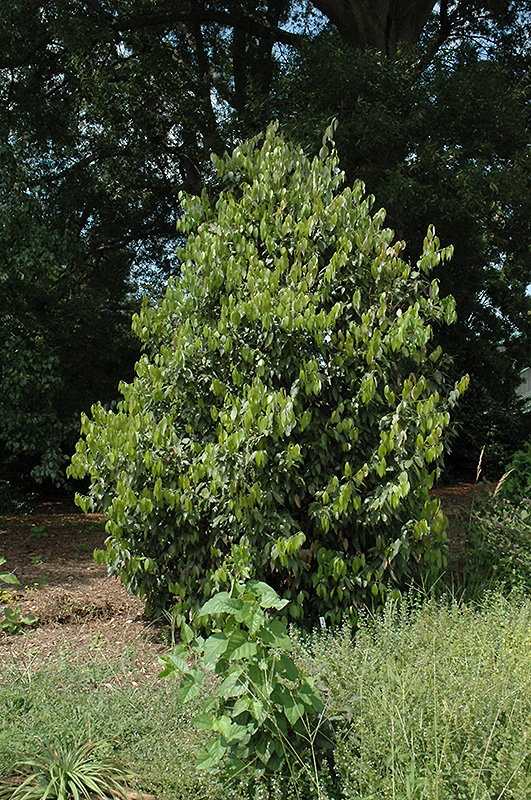Plant Finder
* This is a "special order" plant - contact store for details
Height: 18 feet
Spread: 10 feet
Sunlight:
![]()
![]()
Hardiness Zone: 8a
Other Names: Stout Camphor Tree, Camphorwood, Camphor Laurel
Description:
This variety does not grow as tall as other camphor trees; produces branches of glossy, aromatic green foliage with the scent of camphor; white flowers in spring; an impressive landscape tree for smaller areas; plant away from structures
Ornamental Features
Camphor Tree features showy clusters of lightly-scented white flowers at the ends of the branches from late winter to early spring. It has attractive dark green evergreen foliage which emerges light green in spring. The fragrant pointy leaves are highly ornamental and remain dark green throughout the winter. It produces black berries in mid spring. The fruit can be messy if allowed to drop on the lawn or walkways, and may require occasional clean-up.
Landscape Attributes
Camphor Tree is an evergreen tree with an upright spreading habit of growth. Its average texture blends into the landscape, but can be balanced by one or two finer or coarser trees or shrubs for an effective composition.
This is a relatively low maintenance tree, and should only be pruned after flowering to avoid removing any of the current season's flowers. Gardeners should be aware of the following characteristic(s) that may warrant special consideration;
- Invasive
Camphor Tree is recommended for the following landscape applications;
- Accent
- Shade
- Vertical Accent
Planting & Growing
Camphor Tree will grow to be about 18 feet tall at maturity, with a spread of 10 feet. It has a low canopy with a typical clearance of 3 feet from the ground, and is suitable for planting under power lines. It grows at a slow rate, and under ideal conditions can be expected to live to a ripe old age of 150 years or more; think of this as a heritage tree for future generations!
This tree does best in full sun to partial shade. It prefers to grow in average to moist conditions, and shouldn't be allowed to dry out. It is particular about its soil conditions, with a strong preference for sandy, alkaline soils, and is able to handle environmental salt. It is highly tolerant of urban pollution and will even thrive in inner city environments. This species is not originally from North America, and parts of it are known to be toxic to humans and animals, so care should be exercised in planting it around children and pets.
* This is a "special order" plant - contact store for details

